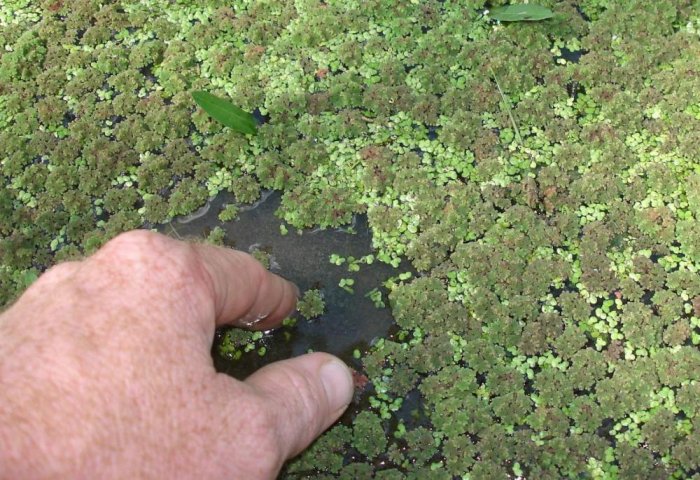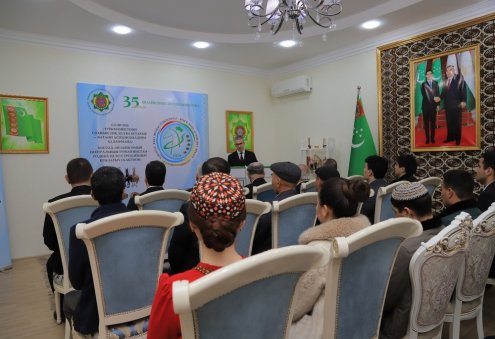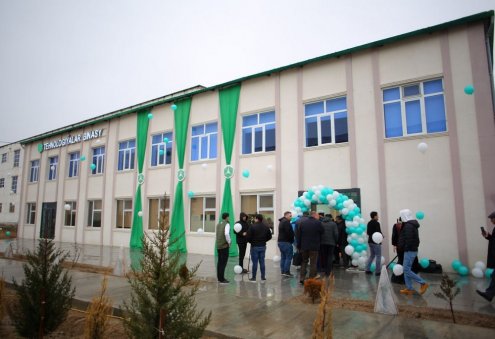Scientists of the Institute of General and Applied Biology, part of the Oguz han Engineering and Technology University of Turkmenistan, are studying ways of introducing azolla plant cultivation to the agriculture sector of Turkmenistan.
One of the main tasks of the institute is to study the biological and environmental characteristics of various plants brought from abroad. Azolla is one of those promising plants as it could be used to address various agricultural needs of Turkmen.
Azolla is a subtropical aquatic fern. The nitrogen-fixing capability of Azolla has led to it being widely used as a biofertiliser in Central Asia and other parts of the world for rice. Azolla planted in one hectare land, can absorb 1000-1400 kg of nitrogen in a year.
When used as bio-fertilizer in rice farming, the production rate of the field increases by 20-25%, thus producing 60-70 centner more from each hectare of land. Its ability to help agricultural crops is compounded by its resistance to pests.
It also reduces water evaporation by covering the surface of water body, thus contributing to the rational use of water. It can also be used for bioremediation of sewer and factory water, meaning it can remove chromium, nickel, copper, zinc, and lead from effluent. Its cultivation is the ecological way of purifying drainage water as well.
Azolla is finding increasing use for sustainable production of livestock feed as well.
The Institute of General and Applied Biology is supplied with up-to-date research equipment of leading innovative brands to facilitate scientists in their research. As part of the structural reorganizations carried out at the Academy of Sciences of Turkmenistan on January this year, it has been incorporated to the Oguz Han Engineering and Technology University of Turkmenistan, a powerful educational and research platform for training of high-level specialists.
The further study and analysis of the biologically active compounds of azolla with high-end biotechnological equipment of the Institute, can pave way for the production of new bioenergy sources.


















